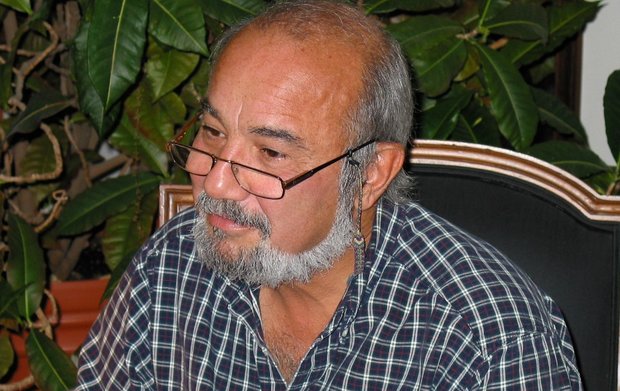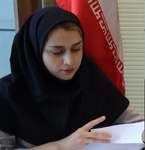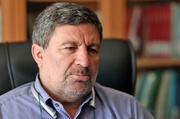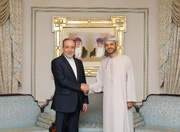“The Holy Quran and its interpretation by the Prophet Mohammad tell us what Muslim societies should strive to do,” said Hossein Askari, who served as special advisor to Saudi finance minister.
He adds that "unfortunately, for centuries, Muslims have abrogated their responsibility to go directly to this source and debate and discuss its application in their times.”
Following is the full text of his interview with Mehr News correspondent:
Before I ask you about the progress you have made in this program of reform and institution-building in Muslim countries since we last spoke about a year ago, can we begin by reminding our readers what this project is all about. What are Islamicity Indices?
Islamicity Indices are based on Quranic teachings. The Holy Quran and its interpretation by the Prophet Mohammad tell us what Muslim societies should strive to do. Unfortunately, for centuries, Muslims have abrogated their responsibility to go directly to this source and debate and discuss its application in their times. Instead, they have allowed rulers to spoon feed them an interpretation of Islam that is far from that envisaged in the Quran and what we see in Muslim countries bears little resemblance to Quranic teachings. The religion has been limited by some to the so-called Five Pillars and to memorization of the Holy Book with little understanding of its deeper message for thriving communities. Most Muslims have not spent the time to understand the deeper meaning of their faith and its application in their time.
In the first place these indices, divided into four broad areas of teachings—on the economy and financial system, legal system and governance, human and political rights, and international relations and then combined into an overall index—provide us with an easy way to convey the central message of Islam for Muslim communities and are also helpful for showing the meaning of Islam to non-Muslims. These indices convey the rules that are at the foundation of this religion. In turn, rules represent institutions and institutions are the foundation of a society’s potential for development. These institutions include the rule of law and an independent judiciary, a constitution, strong property rights and the sanctity of contracts and so on. Societies that have effective institutions thrive and prosper and societies that have ineffective institutions languish and decay. These indices represent the institutions recommended in Islam and provide a benchmark to assess the performance of societies and a compass pointing to the changes (institutions) they should make. A country that scores high on these indices is a country where the people and their government have knowingly or unknowingly adopted and practice the institutions that Islam recommends. A word of caution, we have excluded four important but very personal dictates of the religion—declaration of faith, daily prayers, fasting during Ramadan and pilgrimage to Mecca. We are interested in how a rule-abiding Muslim community should look like. If we included these four elements, then we would bias our results toward countries that profess Islam but do not necessarily follow its important teachings, and in that event could not compare the performance of Muslim and non-Muslim countries.
Most important, I must emphasize a point. As benchmark and compass, these indices enable governments and citizens to collaboratively agree to a set of reforms using these indices as indicators. They can of course use a variant of these indices that better suits their country’s needs and a timetable for getting there. These indices then serve as an indicator of their successes and failures. Thus government and people can work peacefully towards a common goal, a compact that they have agreed to.
In sum, our mission in this program is to: Encourage collaboration between government and people in Muslim countries to build more effective institutions in order to build thriving communities based on Islamic teachings.
What do these indices tell us?
Well, the results are on the one hand surprising and yet on the other hand to be expected. The countries that perform best are the countries of Northern Europe along with New Zealand, Australia and Canada, countries that are generally seen as thriving and successful. Muslim countries perform badly. The best performing Muslim country since 2000 has been Malaysia, followed by Qatar, the UAE and Kuwait. Even Malaysia’s performance is not that great. Malaysia has ranked only in the 30’s in a sample of 154 counties. And the median rank of Muslim countries has been around 120!
The inescapable fact is that although Islamic institutions support thriving societies, most Muslim countries have actually failed to adopt the institutions and practices recommended in Islam, because if they had they would have thriving communities, as would be generally admitted of the countries that perform high on these indices. If Muslim countries want to enhance their performance, they must begin by adopting the effective institutions recommended in their religion. Let me just add that our results were broadly voiced over a century ago by Mohammad Abduh when he said ‘I went to the West and saw Islam but no Muslims; I got back to the East and saw Muslims but no Islam.’ Following our work, some have estimated indices based on Maqsid Shariah and what they have found are essentially the same results as have we. Muslims must face facts. While they may pray, fast and memorize the Quran, their actions and their societies do not reflect what Islam recommends.
Q: How do you plan to use these indices for reform and institution building?
A: Our approach is to develop a partner in every Muslim country and in many non-Muslim countries, encourage the collaboration and cooperation of millions of like-minded Muslims with their governments and across the world to become a virtual community and use these indices as a benchmark and compass to peacefully reverse the centuries of political, social and economic missteps and underperformance. This Muslim countries can do by working toward establishing effective institutions—the globally recognized foundation for sustained development and growth. When governments and the people decide to adopt these indices, or a modified version that they can agree on, then the people and the government have agreed to a plan of peaceful reform. This is something that Malaysia had done. We hope to disseminate our results widely to reach Muslims in every corner of the earth. We will estimate indices yearly. We will publish an annual report on pertinent developments. We plan to publish country reports annually highlighting areas of success and failure and with recommendations for important reforms. Eventually, we hope to hold conferences, with online streaming, focusing on results and areas of reform and institution building. By going global, we hope to build a community that is familiar with the institutions that Islam demands and has cross-border reach to support peaceful reforms in all Muslim communities. Muslims will have support for peaceful reforms no matter where they are!
Over the last year, what have you done in forming an organizational structure to implement this initiative?
We have made much progress. First, we have incorporated the Islamicity Foundation to manage this program. Second, we are in the process of putting together an Advisory Board to guide us. The Advisory Board will guide the foundation toward achieving its mission. We hope eventually to establish a Board of 12 to 15 eminent women and men, with diverse professional and regional backgrounds, to afford the Islamicity Project a broad perspective on the process of institution building and reform across the Muslim World. We have been honored by our three initial members: Dr. Ali Allawi (former Minister of Finance and Minister of Defense of Iraq, Professor at University of Oxford, Princeton and the National University of Singapore and author of a number of highly acclaimed books), Dr. Abbas Mirakhor (Dean of the Executive Board of the IMF, First Holder of INCEIF Chair in Islamic Finance in Malaysia and the author of a number of highly acclaimed books on Islamic economics and finance) and Dr. Jomo Kwame Sundaram (Secretary General for Economic Development in the Department of Economic and Social Affairs of the United Nations, Assistant Director General for Economic and Social Development, Food and Agriculture Organization, professor at Harvard and a number of other universities and author of numerous highly acclaimed books and articles). Third, we have progressed in establishing country partners in 15 countries that have over 50 percent of all Muslims who live in Muslim countries: Afghanistan, Bangladesh, Bosnia and Herzegovina, Côte d’Ivoire, Indonesia, Iran, Malaysia, Nigeria, Oman, Pakistan, Senegal, Singapore, Tunisia and Turkey. Country partners are critical for the success of our mission. These individuals and institutions represent a connected global community who understand the message of Islam and who will work collaboratively toward establishing effective institutions. In time, we plan to have partners in all Muslim majority countries and in numerous non-Muslim majority countries who want to support the process of institution building and reform. Fourth, we have produced four short videos, which can be found on our website: (www.IslamicityFoundation.Org) to explain this program. We plan to produce more videos and podcasts in the coming months. Fifth, we have produced new indices for 2017 and we plan to publish the indices for 2018 in the spring of 2019. Sixth, we have had the book that underlies this effort translated into French and made available free on our website as we own the foreign language publication rights. We are hoping to have a Farsi translation on our website in early 2019. We hope that this book will be translated into other languages in the future. Seventh, we have produced our first annual report and we are working on country reports. And eighth and most important, we are beginning to reach a wide global audience.
Will this project be managed by The Islamicity Foundation or will it be merged into a larger existing entity?
We are hoping to find a welcoming home for the Islamicity Foundation and this program of reform and renewal. Our hope is to merge this into a world-class university anywhere in the world. The critical requirement is not location but rather an institution that is supportive and believes in this effort as do my collaborators and I. In a university setting, we can generate excitement in students who can become our ambassadors, develop exchange programs, hold conferences, facilitate fund raising efforts and I could teach seminars on these indices and related topics of development, economics and finance in Islam. I was exploring one such collaboration but it was not meant to be; and the same can be said for the university where I have taught for over 35 years. I have had interest from a university that I consider to be an ideal home for the Foundation and this Program but it has not developed into anything concrete yet. I will keep looking and I am open to any suggestions.
What are your next steps?
A: I would like begin by finding a university to house the Foundation and the Program. Second, I would like to round out our Advisory Board. In this regard, I would like to have a few slots reserved for the alumni of the university where the Foundation will be housed. Third, I hope that we will expand our country partnerships to reach about 40 partnerships by the end of 2019. Fourth, I hope that we can attract sufficient funding to allow us a small administrative staff. Finally, it would be nice to have a more dynamic website in order to attract a wider audience.
Is there anything you would like to add?
I fear that the world is marching down a track that has a catastrophic end in sight. Western support for oppressive rule, armed conflicts and drone attacks in the name of stability will achieve the opposite—creating misery in failed societies, more enemies for oppressive regimes and also the West who support oppressive rulers. With more wars to come.
Generally speaking, most Muslim countries are not thriving. If we are honest with ourselves, in most of these countries we see widespread injustice and corruption, little respect for human and civil rights, oppression, little freedom to express individual views, no freedom of the press and stagnant economies that do not produce acceptable opportunities for all citizens to develop and grow. At the same time, Islam is totally misunderstood in much of the non-Muslim World and seen as a militant, hostile and undemocratic religion that must be confronted, but Western leaders support tyrannical-strongman rulers in the Muslim world to maintain stability and crush fanatics. Some perverse academics even suggest that the best hope for Muslims is to abandon Islam and adopt Christianity! These ignorant academics attribute failure in the Muslim World to their own straw man, their manufactured and presumed defects in Islam. But our results show the opposite. Countries that we consider successful—in Northern Europe and the like—perform the best in Islamicity Indices.
We are advocating a different path to restore hope, cooperation and peace—the basis for a program of reform and renewal that is firmly anchored in the teachings of the Qur’an, the only realistic framework for Muslim countries. Reform is most likely to succeed in an Islamic framework, and where governments and the people agree on the best path forward and the institutions needed to support it. While this effort places the responsibility to bring about change in the first instance squarely on the shoulders of Muslims, the Western world can lend a helping hand by being less selfish and ending its support for oppressive rule in Muslim countries in the name of stability and selling arms to Muslims to use against Muslims. The US and other Western countries should stop supporting oppressive rulers who assassinate their own people and give Islam and Muslims a bad name. The West must begin to look beyond its nose and adopt a longer-term approach, encouraging meaningful reform based on a realistic timetable. It should practice what it preaches, human rights and not dictators.
To demonstrate my own commitment to this endeavor, I have resigned my endowed Professorship at my university effective January 1, 2019, and the work that I have done for the foundation has been and will continue to be on a pro bono basis.
Interview by: Javad Heirannia



























Your Comment